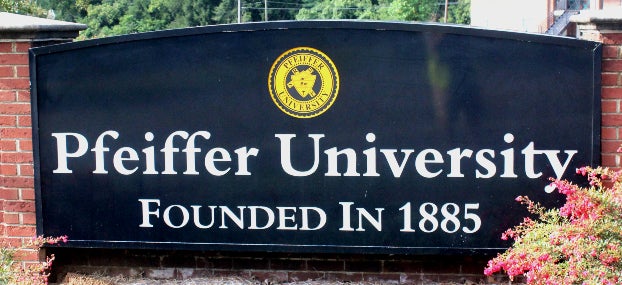Girls in three fourth grade classes at E.D. Koontz Elementary School in Salisbury became “junior cryptologists” this fall, having participated in “CryptoComics,” a special course taught by students from Pfeiffer University’s Department of Education in partnership with the College of Education at the University of Florida.
CryptoComics, created at the University of Florida, aims to interest more girls in cybersecurity careers through a cryptology and cybersecurity curriculum rich in computerized comics stories, interactive crypto puzzles, games and other hands-on learning aids. The program has emerged at a time when women now make up 20 percent of the cybersecurity workforce — up from just 11 percent in 2013.
“Some progress is being made,” said Dr. Laura Sawyer Lowder, an associate professor of education at Pfeiffer and 2002 graduate of the university. “But, it is not nearly enough, and this is especially the case in rural areas and among elementary school girls.”
Trending
The fourth graders involved in the “CryptoComics” project at Koontz Elementary joined four comics girls as they went on “a code-breaking, mind-bending adventure in space and time.” They learned the rudiments of how to read and write secret messages, how secret messages protect the security of the United States and how to protect themselves from computer hackers. They were introduced to women who created secrets that helped the United States win wars, and they became acquainted with women who are keeping us safe from hackers.
The Pfeiffer education students who served as teachers were juniors Landon Orrand, Emily Jackson, and Angelica Sifuentes Flores. Pfeiffer alumna Grayson Harris ’18, ’19 MSEE teaches one of the fourth grade classes involved in the project. After receiving training at the University of Florida, they taught material divided into six chapters: Decoding the Past (Pictorial Codes); World of Words (Morphemes); Ciphers Everywhere; CryptoMath (Numeric Ciphers); Cybersecurity; and Crypt-a-Thon (which reviewed the course’s material and featured a competition).
Lowder earned her doctorate from the University of Florida. The “CryptoComics” project at Koontz Elementary came about after her doctoral advisor reached out to her about it and after Harris helped arrange for the course to be taught at her school. Dr. Pasha Antonenko, who served as the project’s lead researcher from the University of Florida, assisted the teachers during onsite visits.
The “CryptoComics” project also played out elsewhere this fall. It was a virtual offering at Scholars Academy for the Gifted & Artistically Elite, a private school Lowder founded in 2020. Crystal Pittman ’03 was the course’s teacher. Children aged 8 to 12 from across the country participated.
“CryptoComics” was the focus of an after-school club at East Albemarle Elementary School co-led by two teachers there: Bobbi Craig ’09 and Sandy Summerlin, a STEM teacher. Eighteen girls in grades 3 through 5 participated.
“Dr. Lowder invited me to be a part of a Cryptology club grant over the summer,” said Craig, who also completed Pfeiffer’s STEM Teacher Institute in 2019. “She helped me through the training process as well as planning for implementation this fall. This was not something I initially thought I’d be comfortable teaching.
Trending
“However, she has been nearby to troubleshoot and answer questions on demand. Without her encouraging me to participate, I would have missed a huge chance to grow myself professionally and step out of my comfort zone.”
“CryptoComics” aims to fill a void in the student-teaching that education students at Pfeiffer do at schools near its Misenheimer campus.
Said Lowder: “I immediately saw this endeavor as an opportunity for our teaching candidates to both learn a cybersecurity curriculum in their licensure area and to gain experience actually doing the teaching of this curriculum to area children.”
Lowder now speaks of a growing North Carolina CryptoComics team that is “poised to grow the reach of this experience so that more and more young girls can learn about the possibilities of Cryptology careers for their futures.” She added that a “next-step research study” is in its initial stages. This will “look into strategies for preparing teacher candidates, like our Pfeiffer students, to implement more of these programs in the future.”
The “CryptoComics” program at Koontz Elementary ended in November. Harris said the fourth graders there have loved being a part of it and that many now see themselves working in cybersecurity when they grow up and have begun exploring various careers in that field.
“What I enjoy about it is that we get to learn new things and learn more about coding,” Harris said, quoting a student named Aaliyah. “I would like to work with this more in the future and eventually work on new codes at home for others to figure out.”





